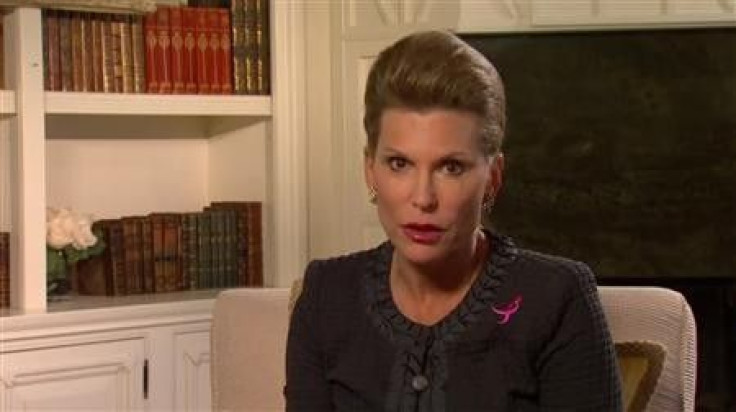Komen reverses move to cut Planned Parenthood funding

The Susan G. Komen for the Cure foundation backed down from its decision to cut funding for Planned Parenthood, which provides abortion and birth control services, following a massive outcry by supporters of the world's largest breast cancer charity.
Komen's decision had thrust the group into America's deeply politicized debate over abortion rights and its apology on Friday may not satisfy the more vocal advocates on either side.
Planned Parenthood supporters, including local directors within Komen's ranks, say Komen had come under pressure from anti-abortion activists. Social conservatives had lauded the move to disengage from Planned Parenthood and said it would win Komen new supporters.
We want to apologize to the American public for recent decisions that cast doubt upon our commitment to our mission of saving women's lives, Komen said in a statement on Friday signed by its board of directors and its founder Nancy Brinker.
Komen had said earlier this week it would cease to fund grants for breast cancer screening to Planned Parenthood under new rules to tighten eligibility. The guidelines excluded groups under investigation by U.S. authorities and Planned Parenthood is the subject of a probe by U.S. Rep. Cliff Stearns, a Republican from Florida who opposes abortion.
Planned Parenthood provides a variety of services - including reproductive healthcare, sex education, cancer screenings and information on sexually transmitted diseases - but its abortion role has put it at the forefront of the national debate.
Komen's move prompted a protest campaign on social media sites like Twitter and Facebook that reached a fever pitch on Thursday. Local Komen chapters sent letters to headquarters opposing the move, and by late Thursday night, its board convened a special meeting.
Komen said it will now amend its new funding criteria to ensure that politics has no place in our grant process. The guidelines will make clear that a group under investigation will be disqualified only if the probe is criminal and conclusive in nature and not political.
We will continue to fund existing grants, including those of Planned Parenthood, and preserve their eligibility to apply for future grants, while maintaining the ability of our affiliates to make funding decisions that meet the needs of their communities.
Planned Parenthood said it was enormously grateful that Komen amended its funding rules.
HISTORY OF WORKING TOGETHER
I really take them at their word that this is behind us, Planned Parenthood President Cecile Richards told reporters. She pointed to the strong ties between both organizations at the community level where we work together to provide services and care for women who have nowhere else to turn.
Komen grants to Planned Parenthood amount to about $700,000 annually and have helped fund 170,000 clinical breast exams and more than 6,400 mammogram referrals in the past five years, mostly to poor women.
Richards said the public support this week led to nearly $3 million in new donations for its national breast health fund. New York Mayor Michael Bloomberg pledged $250,000, while cycling champion Lance Armstrong's cancer foundation LiveStrong said on Friday it was donating $100,000.
Brinker founded the Komen foundation, known for its pink ribbon symbol and Race for the Cure fundraisers, after the death of her sister, Susan Komen, of breast cancer in 1980. The organization has collected more than $1.9 billion for breast cancer research and programs and has affiliates in more than 100 U.S. cities and 50 countries.
Komen officials insisted the organization had not taken a political turn by changing its grant guidelines. Board member John Raffaelli described the initial Planned Parenthood decision as a misunderstanding of its own funding policy.
It didn't come out very clearly, Raffaelli told Reuters. It got screwed up.
But activists on both sides of the debate cited signs of a change in outlook from the group, and attributed some of it to pressure from anti-abortion activists.
Brinker, who served as ambassador to Hungary under President George W. Bush, had appointed Republican Karen Handel to a senior policy role inside the group last year. Handel had run for Georgia governor on a platform that called for defunding Planned Parenthood.
DISAPPOINTMENT OVER REVERSAL
Komen faces additional fallout from the crisis, as social conservatives expressed deep disappointment over the group's about-face. Representative Kevin Brady, a member of the House Republican leadership team, said it was really unfortunate that Komen reversed its decision.
To be giving grants to an organization that effectively ends so many lives -- (it) just seems to me they made the right decision before and they're making the wrong decision now, Brady told Reuters.
Stearns pledged to continue the investigation into Planned Parenthood's use of taxpayer funds and said the group's latest fundraising shows it does not need the Komen funding.
Local Komen affiliates contacted by Reuters said they had no input into the decision to cut funding for Planned Parenthood on the national level, and many opposed it, whether openly or through private letters to the headquarters.
We sent official letters to the headquarters, said Nancy Healey, executive director of the Komen chapter in central and southern New Jersey. Komen is a grassroots organization. The displeasure and the outrage was heard and the decision was reversed. I'm thrilled.
Anne Morris, executive director of Komen Connecticut, had publicly refused to pull her affiliate's funding for Planned Parenthood. Morris said she continued speaking with the local Planned Parenthood daily through the week.
Our supporters knew that we weren't supporting that (the national decision), she said. Our donors and people participating in Race for the Cure really applauded us for that.
© Copyright Thomson Reuters 2024. All rights reserved.











